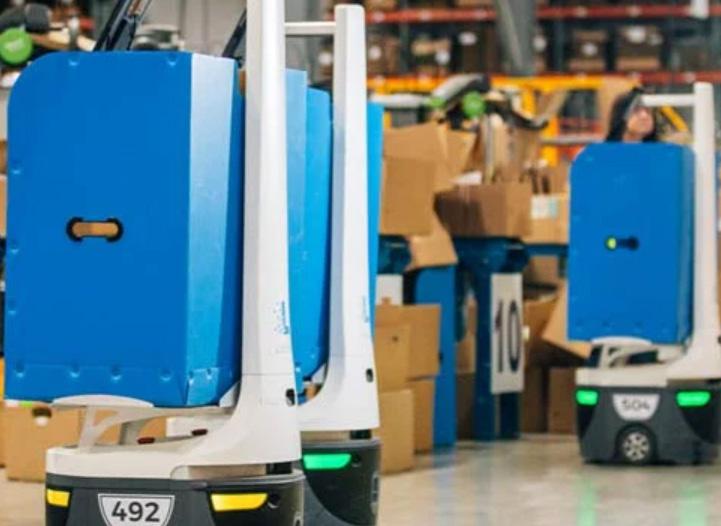
2 minute read
How did NKY companies respond to supply chain issues brought on by pandemic?
BY KENTON HORNBECK | LINK nky BUSINESS REPORTER
Alabor force crunch. Rising costs. Geopolitical uncertainty. These pandemic-induced problems forced two of Northern Kentucky’s most vital economic sectors to adjust on the fly.
On July 11, logistics and manufacturing industry leaders from around the region gathered at Eggs ‘N Issues, a panel discussion hosted by the Northern Kentucky Chamber of Commerce. They discussed how their businesses adapted to the radical circumstances brought on by the COVID-19 pandemic and what they’re doing to acclimate their operations to better suit market demands.
The event’s featured panelists were Perfetti Van Melle North America CEO Sylvia Buxton, Verst Logistics President Todd Johnson and Kentucky Association of Manufacturers CEO Frank Jemley III.
Nationally, 72% of executives surveyed reported that the pandemic had a negative effect on their company, according to research conducted by global consulting firm Ernst & Young.
Their research also found that the pandemic exacerbated supply chain issues that previously existed. Companies were already integrating automation into their supply chain operations.
One of the pandemic’s negative effects was its damage to the Northern Kentucky labor pool.
“Previous to COVID, we would basically just hire people with prior manufacturing experience,” Buxton said. “They’re just not available.”
As a result, companies accelerated their investments in technologies such as artificial intelligence and robotic automation.
Ernst & Young’s research found that 92% of surveyed companies did not halt their technology investments during the pandemic. This highlights the important role of technology in responding to volatile supply chain conditions swiftly.
Buxton cited a maxim regarding Northern Kentucky’s future workforce often expressed by Janet Harrah, senior director at Northern Kentucky University’s Center for Economic Development, which states, “Your next generation of workers have already been born, and there aren’t enough of them.”
This line of thinking is shared among many of Northern Kentucky’s business leaders. Demographic drought, and the aforementioned pandemic labor force crunch, caused many regional companies to focus on technological investment.
“One of the things that we need to think about as far as business leaders is how we’re going to make sure that we can run our businesses effectively with staff or without them,” Buxton said. “So certainly, that brings into play a lot of the investments that we’ve been making in our facil- ities, which is related to automation.”
So far, automation technology is oftentimes implemented into the operations of lower-level jobs, or what Johnson called “jobs that no one wants to do really anyway.”
“The warehousing and logistics side, there was some automation, but particularly the use of robots was unheard of,” Johnson said. “Now, it’s almost every major competitor in our industry has some form of robots out there picking orders — used to be a very human function.”

Johnson said this shift has caused manufacturers to upgrade those roles into “something more technical.” These roles require workers to have more advanced training.
Buxton said Perfetti Van Melle has adjusted its training programs to better serve new workers hired into these roles.
“We had to completely retool our training programs to be able to bring in nonmanufacturing-experienced folks — be able to train them with not only on-the-job learning but also technical training.”
Adequately communicating these roles to the current and next generations of workers is one way companies can potentially recover workers lost during the pandemic.
“A vocational and technical career is what America needs a whole lot of,” Jemley said. “It’s (communicating) a huge challenge, and we’ve got to do a much better job here in Kentucky.”
Coming out of the pandemic, Johnson thinks Northern Kentucky is well-positioned to grow its logistics and manufacturing sectors due to its industrial real estate market and the region’s road, rail and air networks.
“We’ve got lots of good infrastructure, and it’s grown remarkably over the last five years,” Johnson said.
NKY exhibit highlights art of Asian American, Pacific Islander residents
exhibit is free and open to the public.
The library branch in Erlanger is the second stop on the exhibit’s statewide tour. The first stop was in Frankfort at the Capitol building. Created by a partnership between the Kentucky Arts Council, Asia Institute-Crane House and the Kentucky Chinese American Association, the exhibit initially honored Asian American/Pacific Islander Heritage Month in May.










